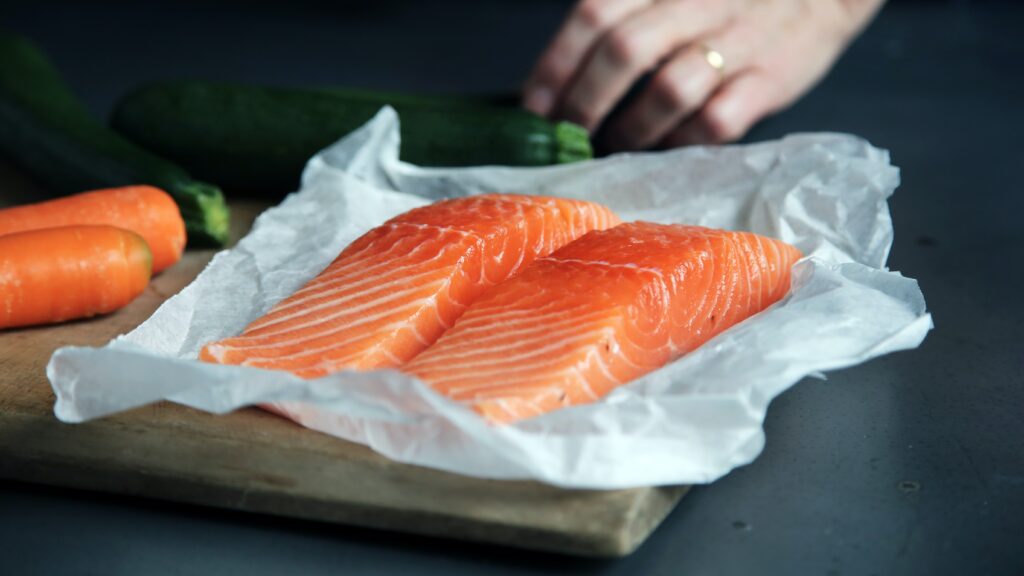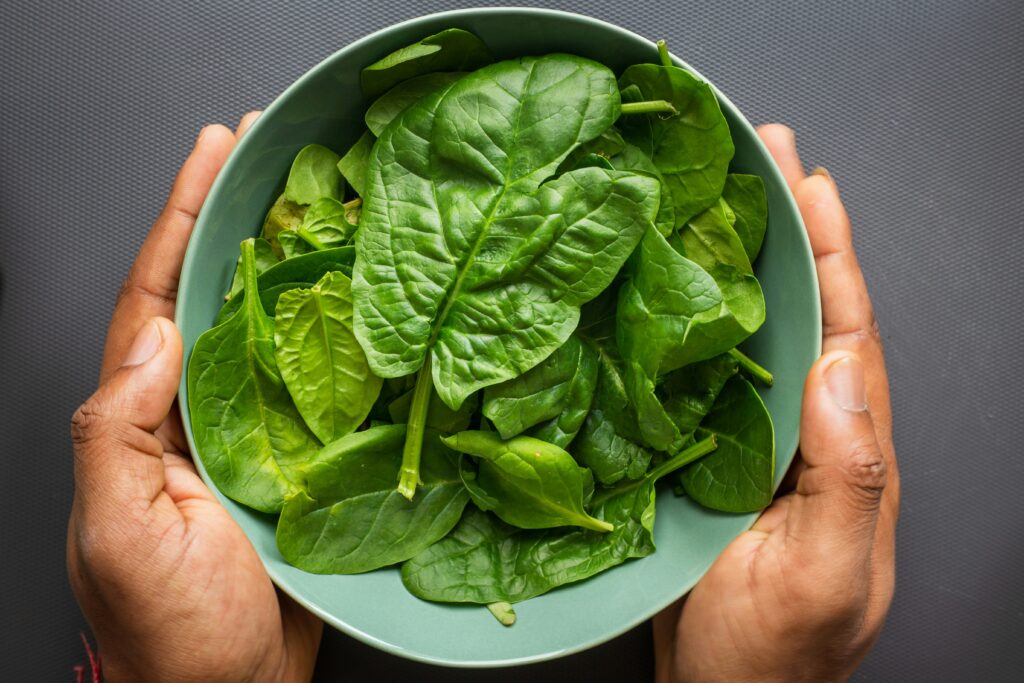Addressing knee pain through dietary choices involves incorporating foods that have anti-inflammatory properties, support joint health, and contribute to overall well-being. While it’s essential to consult with a healthcare professional for personalized advice, According Mohit Tandon Houston, the following comprehensive guide explores the best foods to have in your diet if your knee is paining.
Introduction
Knee pain can result from various causes, including injuries, arthritis, and inflammation. While dietary changes alone may not replace medical intervention, certain foods can play a role in managing inflammation, supporting joint health, and promoting overall well-being. This guide will explore a range of foods known for their anti-inflammatory and joint-friendly properties.
1. Fatty Fish: Omega-3 Rich Sources
Fatty fish, such as salmon, mackerel, sardines, and trout, are excellent sources of omega-3 fatty acids. Omega-3s are known for their anti-inflammatory effects, which can be beneficial for reducing joint pain and inflammation.

Benefits:
- Anti-Inflammatory: Omega-3 fatty acids have been shown to reduce inflammation, which can be particularly beneficial for individuals with inflammatory forms of arthritis.
- Joint Health: The lubricating properties of omega-3s may contribute to joint health, potentially alleviating knee discomfort. – Mohit Tandon Houston
How to Incorporate:
- Aim for at least two servings of fatty fish per week.
- Consider grilling, baking, or broiling fish for a healthy preparation method.
2. Leafy Greens: Rich in Antioxidants
Leafy greens, such as kale, spinach, and Swiss chard, are rich in antioxidants, including vitamins A and C. Antioxidants help combat oxidative stress, which is linked to inflammation and joint pain.

Benefits:
- Anti-Inflammatory: Antioxidants neutralize free radicals, reducing inflammation and supporting overall joint health. – Mohit Tandon Houston
- Nutrient-Rich: Leafy greens provide essential vitamins and minerals that contribute to overall well-being.
How to Incorporate:
- Include a variety of leafy greens in salads, smoothies, or as a side dish.
- Consider lightly sautéing greens for a warm side. – Mohit Tandon Houston
3. Turmeric: Natural Anti-Inflammatory Spice
Turmeric, a spice commonly used in curry dishes, contains curcumin, a compound with potent anti-inflammatory and antioxidant properties. Curcumin has been studied for its potential to reduce symptoms of osteoarthritis and rheumatoid arthritis.

Benefits:
- Anti-Inflammatory: Curcumin has been shown to inhibit inflammatory pathways, providing relief for joint pain.
- Joint Health: Turmeric may support overall joint health and flexibility. – Mohit Tandon Houston
How to Incorporate:
- Add turmeric to curries, soups, or stews.
- Consider taking turmeric supplements, but consult with a healthcare professional for proper dosage.
4. Berries: Rich in Anthocyanins
Berries, including strawberries, blueberries, and raspberries, are packed with anthocyanins, which have antioxidant and anti-inflammatory properties. Mohit Tandon from Houston says that These compounds may contribute to reducing inflammation associated with knee pain.

Benefits:
- Antioxidant Properties: Anthocyanins protect cells from oxidative damage, potentially alleviating inflammation.
- Vitamin C Content: Berries are rich in vitamin C, which supports collagen formation for joint health.
How to Incorporate:
- Enjoy berries as a snack, in smoothies, or atop yogurt.
- Include a variety of berries in your diet for maximum benefits.
5. Ginger: Anti-Inflammatory Spice
Ginger is known for its anti-inflammatory and analgesic properties, making it a potential natural remedy for managing knee pain. It contains gingerol, a bioactive compound with medicinal properties.
Benefits:
- Anti-Inflammatory: Ginger may help reduce inflammation and alleviate pain associated with inflammatory conditions. – Mohit Tandon Houston
- Digestive Aid: Accordingly Mohit Tandon from Houston, Ginger can also support digestion, which is crucial for overall well-being.
How to Incorporate:
- Add fresh ginger to teas, stir-fries, or smoothies.
- Consider ginger supplements under the guidance of a healthcare professional.
6. Nuts and Seeds: Omega-3s and Anti-Inflammatory Nutrients
Nuts and seeds, such as walnuts, chia seeds, and flaxseeds, are rich in omega-3 fatty acids and other anti-inflammatory nutrients.
Benefits:
- Omega-3 Content: Nuts and seeds contribute to the omega-3 intake, supporting joint health.
- Nutrient Diversity: These foods provide a variety of essential nutrients beneficial for overall health.
How to Incorporate:
- Snack on a handful of mixed nuts or seeds.
- Sprinkle flaxseeds or chia seeds on yogurt, oatmeal, or salads.
7. Cruciferous Vegetables: Sulforaphane-Rich Choices
Cruciferous vegetables, such as broccoli, Brussels sprouts, and cauliflower, contain sulforaphane, a compound with potential anti-inflammatory properties.
Benefits:
- Anti-Inflammatory: Sulforaphane may help reduce inflammation and support joint health.
- Rich in Nutrients: Cruciferous vegetables provide essential vitamins and minerals.
How to Incorporate:
- Include cruciferous vegetables in stir-fries, roasted dishes, or as side dishes.
- Aim for a diverse range of colorful vegetables for maximum nutrient intake.
8. Oranges and Citrus Fruits: Vitamin C Boosters
Oranges and other citrus fruits are rich in vitamin C, an antioxidant that supports collagen formation and can contribute to joint health.
Benefits:
- Collagen Support: Vitamin C is essential for collagen synthesis, promoting joint health.
- Anti-Inflammatory: Citrus fruits contain anti-inflammatory compounds that may aid in reducing knee pain.
How to Incorporate:
- Enjoy fresh citrus fruits as snacks or in fruit salads.
- Drink freshly squeezed orange juice for a vitamin C boost.
9. Pineapple: Bromelain-Rich Fruit
Pineapple contains bromelain, an enzyme with anti-inflammatory and analgesic properties. Bromelain may help reduce pain and swelling associated with knee injuries.
Benefits:
- Anti-Inflammatory: Bromelain has been studied for its ability to reduce inflammation and improve joint function.
- Digestive Aid: Pineapple can support digestion, contributing to overall well-being.
How to Incorporate:
- Include fresh pineapple in fruit salads, smoothies, or as a standalone snack.
- Consider bromelain supplements under medical supervision.
10. Green Tea: Rich in Polyphenols
Green tea is a beverage rich in polyphenols, which have antioxidant and anti-inflammatory properties. Drinking green tea may contribute to overall joint health.
Benefits:
- Polyphenol Content: Green tea polyphenols may help reduce inflammation and oxidative stress.
- Hydration: Staying hydrated is essential for joint health, and green tea provides a hydrating option.
How to Incorporate:
- Drink green tea as a warm or iced beverage.
- Experiment with different flavors or add a slice of lemon for variety.
11. Whole Grains: Fiber and Nutrient-Rich Choices
Whole grains, such as quinoa, brown rice, and oats, are rich in fiber and nutrients that contribute to overall health and may indirectly support joint health.
Benefits:
- Fiber Content: Whole grains support digestive health and may indirectly contribute to reducing inflammation.
- Nutrient Diversity: These grains provide a range of essential nutrients.
How to Incorporate:
- Choose whole grains as a base for meals, such as quinoa salads or brown rice bowls.
- Opt for whole-grain bread or oats for breakfast.
12. Garlic: Anti-Inflammatory and Immune-Boosting
Garlic contains allicin, a compound with anti-inflammatory properties. Additionally, garlic has immune-boosting benefits that can contribute to overall well-being.
Benefits:
- Anti-Inflammatory: Allicin in garlic may help reduce inflammation associated with joint pain.
- Immune Support: A healthy immune system is crucial for overall health.
How to Incorporate:
- Use fresh garlic in cooking to add flavor to dishes.
- Consider garlic supplements but consult with a healthcare professional for guidance.
13. Protein-Rich Foods: Building Blocks for Joint Health
Protein is essential for maintaining and repairing tissues, including those in the joints. Include lean protein sources, such as poultry, lean meats, tofu, and legumes, in your diet.
Benefits:
- Tissue Repair: Adequate protein intake supports the repair and maintenance of joint tissues.
- Muscle Support: Strong muscles help support joints and reduce stress on the knee.
How to Incorporate:
- Include a variety of protein sources in your meals, such as grilled chicken, beans, or tofu.
- Consider plant-based protein options for a diverse nutrient profile.
14. Olive Oil: Healthy Fats and Anti-Inflammatory Properties
Olive oil is a source of monounsaturated fats, which have anti-inflammatory properties. Additionally, olive oil is rich in antioxidants.
Benefits:
- Anti-Inflammatory: Monounsaturated fats in olive oil may help reduce inflammation in the body.
- Heart Health: Olive oil supports cardiovascular health, contributing to overall well-being.
How to Incorporate:
- Use extra virgin olive oil for salad dressings or as a drizzle over cooked vegetables.
- Include olive oil in cooking for added flavor and health benefits.
15. Tart Cherry Juice: Natural Anti-Inflammatory
Tart cherries contain anthocyanins, which have anti-inflammatory properties. Drinking tart cherry juice may help reduce inflammation and alleviate joint pain.
Benefits:
- Anti-Inflammatory: Anthocyanins in tart cherries may help reduce inflammation associated with knee pain.
- Natural Sweetness: Tart cherry juice can be a delicious and natural way to satisfy sweet cravings.
How to Incorporate:
- Drink tart cherry juice as a beverage or include it in smoothies.
- Ensure the juice is free of added sugars for optimal health benefits.
Conclusion
While these foods may contribute to managing knee pain and promoting joint health, it’s crucial to emphasize that they are part of a comprehensive approach to well-being. Consult with a healthcare professional for a proper diagnosis and treatment plan, and consider working with a registered dietitian to tailor dietary changes to your specific needs.
Incorporate a variety of these foods into your diet to benefit from their collective nutritional value. Additionally, adopting an overall healthy lifestyle, including regular exercise, proper hydration, and sufficient sleep, can further contribute to managing knee pain and supporting overall health.
Remember that individual responses to foods may vary, and it’s essential to pay attention to how your body responds to dietary changes. If knee pain persists or worsens, seek medical attention promptly. The combination of medical guidance, a balanced diet, and a healthy lifestyle can contribute to better knee health and overall well-being.
